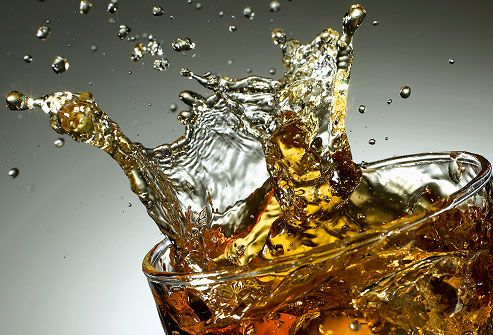11 myths about a hangover
Last reviewed: 30.03.2024

All iLive content is medically reviewed or fact checked to ensure as much factual accuracy as possible.
We have strict sourcing guidelines and only link to reputable media sites, academic research institutions and, whenever possible, medically peer reviewed studies. Note that the numbers in parentheses ([1], [2], etc.) are clickable links to these studies.
If you feel that any of our content is inaccurate, out-of-date, or otherwise questionable, please select it and press Ctrl + Enter.
Myths about a hangover syndrome are about the same as the number of different alcoholic beverages from which it comes. ILive will try to dispel the most popular ones.
Myth # 1 Hangover - it's not scary
Hangover syndrome is the body's response to alcohol intoxication. Alcohol reacts with the chemical elements that are contained in the brain, and a large amount of the drunk affects the nervous system. Excessive libations in the evening can result in dehydration, headache, nausea and dizziness in the morning. Regular "booze" can lead to a weakening of the immune system.
Myth # 2 Hangover is the same for both men and women
The use of the same drinks in the same number of women and men can quickly put the weaker sex on the shoulder blades, because ladies risk getting intoxicated much faster than men. The fact is that in the body of a strong half of humanity contains a relatively larger amount of water, which helps dissolve alcohol.
Myth №3 Only alcoholics suffer a hangover
This has to do with the truth, because long binges accelerate the way to a hangover, but once thoroughly reveling, you can suffer the whole next day. And much depends on the build, because even one glass can lead to symptoms of a hangover, such as headache and nausea.
Myth # 4 Wine is an easy drink
Tannins, which are part of the wine, can cause severe headaches in some people. Strong hangovers cause malt drinks, for example, whiskey.
Myth # 5 Dietary cocktails are harmless

If you burn every calorie, diet calories in this case will be able to help you, but it's unlikely that you will be able to avoid a hangover in the morning.
Myth # 6 Strong drinks drunk before a beer - it's not scary
The order of consumption of alcoholic beverages does not matter, the main thing is the quantity. The only thing that the order of drunk can affect is again the amount. Whatever one may say, excessive libations are bad.
Myth # 7 Food after intoxication
After having already drunk an unmetered amount of alcohol, eating before going to bed will not help get rid of hangover. She can save or alleviate an unpleasant condition in the morning, but you need to eat before the fun begins. Best absorption of alcohol slows down fatty foods.
Myth # 8 Painkillers before bed will get rid of a headache in the morning
The strongest effect of OTC drugs is four hours after taking, so it is better to take the medication immediately after awakening. Do not take paracetamol after drinking alcoholic beverages, alcohol disrupts the process of digestion of acetaminophen by the liver, and this leads to its damage and inflammation.
Myth # 9 Alcohol improves sleep
Quite the opposite, alcohol disturbs normal sleep. Despite the fact that a person falls asleep faster from a small dose of alcohol, the quality of his sleep worsens. You, most likely, will wake up earlier and will not spend in a phase of fast sleep the necessary period of time.
Myth # 10 The hangover will be cured by a morning glass
If you add a dose of alcohol in the morning, it will only delay the hangover, and the most unpleasant symptoms come when the level of alcohol in the blood reaches the "0" mark.
Myth # 11 Coffee helps to gather
Coffee will only lead to more severe dehydration and aggravate the symptoms of a hangover. It is better to drink water, especially if there was vomiting.
